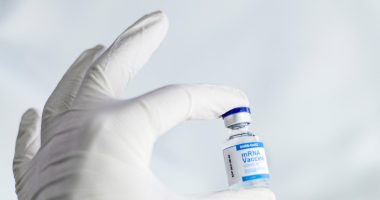Enrollment Complete for Phase 3 Trial Testing INOpulse for PH
Top-line data expected mid-year, may support FDA approval bid

Enrollment is now complete in REBUILD, a Phase 3 clinical trial evaluating INOpulse, an investigational treatment for people with pulmonary fibrosis (PF) who are at risk of developing pulmonary hypertension (PH).
According to the therapy’s developer, Bellerophon Therapeutics, the trial’s enrollment was completed earlier than expected. As a result, top-line data are now expected by the middle of this year, with positive results supporting the company’s bid to seek INOpulse’s regulatory approval.
“We are pleased to have completed enrollment in this important study sooner than previously anticipated, which represents a significant milestone for Bellerophon [and] our INOpulse clinical development program,” Naseem Amin, MD, chairman of Bellerophon’s board of directors, said in a press release.
“Based on the earlier than expected enrollment completion, we now expect to report top-line results from REBUILD in mid-2023,” Amin added.
Enrollment completed earlier than expected
PF is marked by fibrosis or scarring of the lungs’ interstitial tissue, which makes up the walls around alveoli, the tiny air sacs in the lungs. Referred to as fibrosing interstitial lung disease (fILD), the condition can lead to elevated blood pressure (hypertension) in the blood vessels, called the pulmonary arteries, that supply the lungs.
High blood pressure in the pulmonary arteries is a hallmark of PH.
INOpulse delivers an inhaled formulation of nitric oxide (NO), a vasodilator that lowers blood pressure by opening and relaxing these blood vessels.
REBUILD (NCT03267108), launched in late 2020, has now enrolled a total of 145 adults with PF, ages 18 to 80, at sites across the U.S. and Canada. All patients were at risk of PH. The participants have been randomly assigned to receive INOpulse or an inactive nitrogen gas placebo.
After four months, trial investigators will determine whether INOpulse, compared with the placebo, improved moderate to vigorous physical activity — a measure that correlates with the activities of daily living — as assessed with a worn sensor.
“This study will provide the randomized dataset to evaluate the change in moderate to vigorous physical activity (MVPA) following treatment with INOpulse in patients with fILD,” said Peter Fernandes, Bellerophon’s CEO.
“These patients struggle to perform basic activities of daily living, such as walking, climbing stairs, or showering. The ability to monitor changes in their level of physical activity, specifically the difference in MVPA as the novel endpoint, which correlates to household tasks and activities of daily living, has the potential to inform directly on the patient’s overall health, well-being, and quality of life,” Fernandes said.
REBUILD’s enrollment was expedited after the U.S. Food and Drug Administration accepted Bellerophon’s request to reduce the size of the Phase 3 trial.
Supported by the findings of a Phase 2 study, the company proposed that a clinical trial with 140 participants was sufficiently statistically powered — meaning that a significant difference in MVPA between INOpulse and placebo recipients would be statistically valid and demonstrate efficacy.
“We are extremely grateful to our clinical sites for their support in the expeditious enrollment of this study and look forward to the availability of top-line results from REBUILD later this year,” Fernandes said.








